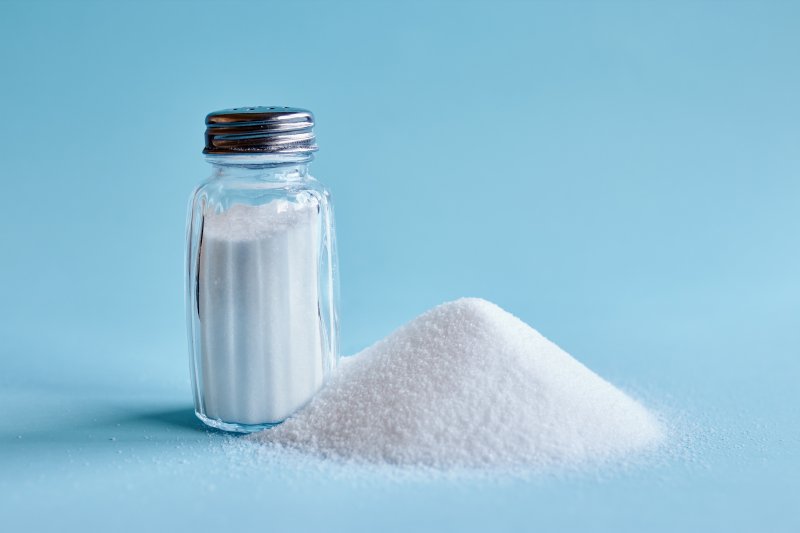The Salty Truth: How Sodium Chloride Affects Your Dental Health
February 9, 2024

Salt is a common ingredient in the American diet. It’s so common that many people consume far more of it than necessary. While its effects in large amounts in the body are well researched, is it bad for your teeth? You often hear about the detrimental effects of sugar on dental health, but the impact of salt is less available. If you’re curious about the effects of salt on your dental health, continue reading. The results may surprise you!
Why is Salt Bad for Dental Health?
There are a few ways that sodium chloride (also known as table salt) can affect your teeth. Some of them are more direct than others. Here are a few examples:
Enamel Erosion
High-salt diets tend to include many foods that can erode enamel—the outer layer of your teeth. While salt itself is not acidic, salty foods often contain acids that can weaken enamel with frequent indulgence. Many savory snacks that contain salt are also high in starch or carbohydrates. These are compounds that bacterial plaque use to produce acid that leads to cavities.
Sialolithiasis (Salivary Stones)
Sialolithiasis are stones that form in the salivary glands and block them. Saliva plays a critical role in washing away food particles and keeping dental bacteria at bay. Without it, your mouth is far more vulnerable to tooth decay and gum disease. A diet high in salt can contribute to the formation of these stones.
Gum Recession
Another issue with a sodium-rich diet is gum recession. This is when your gums pull away from your teeth, exposing more of the roots. This can lead to decay, infection, and sensitivity for the exposed teeth.
Can Salt Be Good For Dental Health?
While it’s true that a sodium-rich diet can lead to oral complications, the same can’t be said for more direct uses. Here are some ways that salt can help your dental health:
Saltwater Rinses
Salt has been used for centuries as a disinfectant and pain reducer. If you have a toothache or oral sores, one of the best ways to alleviate the pain is with a rinse of warm salty water.
Sodium In Toothpaste and Saliva
Toothpaste also contains a little sodium chloride. It helps the paste stay viscous and contributes to its plaque-fighting power. This is another great attribute of salt that is also incorporated into your saliva—the ability to neutralize acids by raising the pH of your mouth.
So, salt is neither purely good nor bad for your dental health. It all depends on whether it’s ingested or used topically and the quantity. By practicing moderation, maintaining good oral hygiene habits, and choosing salt-conscious food options, you can preserve your dental health. Meanwhile, you can still enjoy the flavor that salt brings to the table!
About the Practice
Dr. Ross Katkowski and Dr. Arabella Christian are an experienced and talented team at Bristol Family Dental. They both have advanced training in preventive dentistry as well as many hours of continuing education in all aspects of dentistry great and small. They use state-of-the-art dental technology and techniques to ensure that every patient can reach their smile goals. Call (860) 589-2794 to schedule an appointment or visit the website to explore other services they offer.
No Comments
No comments yet.
RSS feed for comments on this post.
Sorry, the comment form is closed at this time.
